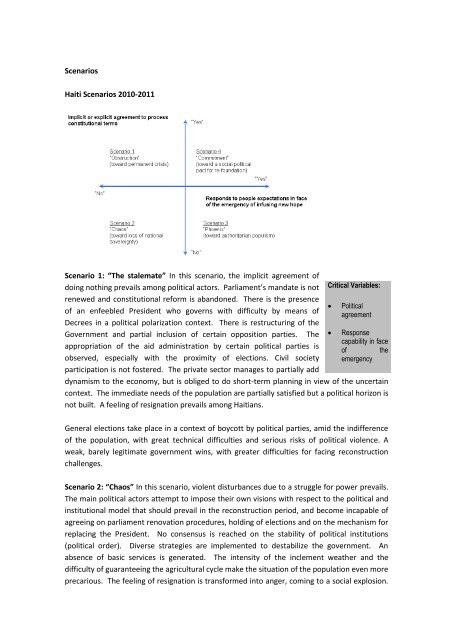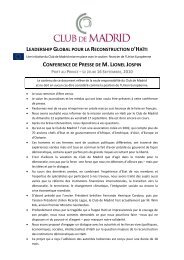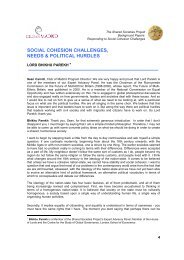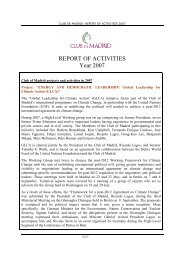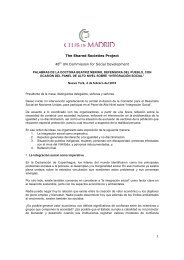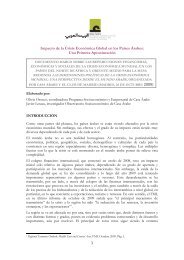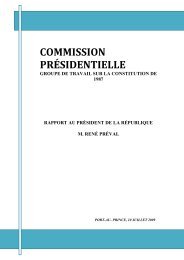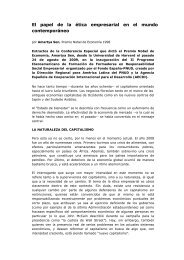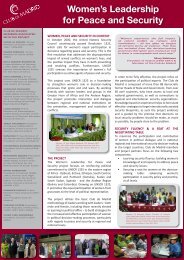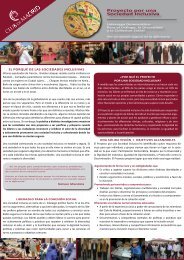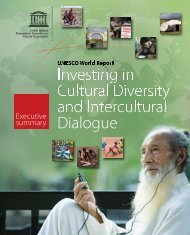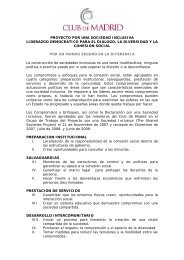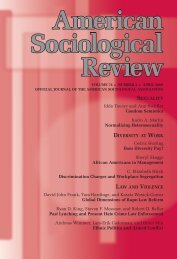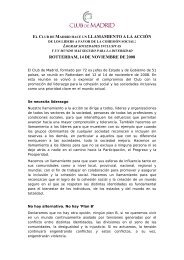Haiti 2010: Possible scenarios after the earthquake ... - Club of Madrid
Haiti 2010: Possible scenarios after the earthquake ... - Club of Madrid
Haiti 2010: Possible scenarios after the earthquake ... - Club of Madrid
You also want an ePaper? Increase the reach of your titles
YUMPU automatically turns print PDFs into web optimized ePapers that Google loves.
Scenarios<br />
<strong>Haiti</strong> Scenarios <strong>2010</strong>-2011<br />
Scenario 1: “The stalemate” In this scenario, <strong>the</strong> implicit agreement <strong>of</strong><br />
doing nothing prevails among political actors. Parliament’s mandate is not<br />
renewed and constitutional reform is abandoned. There is <strong>the</strong> presence<br />
<strong>of</strong> an enfeebled President who governs with difficulty by means <strong>of</strong><br />
Decrees in a political polarization context. There is restructuring <strong>of</strong> <strong>the</strong><br />
Government and partial inclusion <strong>of</strong> certain opposition parties. The<br />
appropriation <strong>of</strong> <strong>the</strong> aid administration by certain political parties is<br />
observed, especially with <strong>the</strong> proximity <strong>of</strong> elections. Civil society<br />
participation is not fostered. The private sector manages to partially add<br />
Critical Variables:<br />
dynamism to <strong>the</strong> economy, but is obliged to do short-term planning in view <strong>of</strong> <strong>the</strong> uncertain<br />
context. The immediate needs <strong>of</strong> <strong>the</strong> population are partially satisfied but a political horizon is<br />
not built. A feeling <strong>of</strong> resignation prevails among <strong>Haiti</strong>ans.<br />
General elections take place in a context <strong>of</strong> boycott by political parties, amid <strong>the</strong> indifference<br />
<strong>of</strong> <strong>the</strong> population, with great technical difficulties and serious risks <strong>of</strong> political violence. A<br />
weak, barely legitimate government wins, with greater difficulties for facing reconstruction<br />
challenges.<br />
<br />
<br />
Political<br />
agreement<br />
Response<br />
capability in face<br />
<strong>of</strong><br />
<strong>the</strong><br />
emergency<br />
Scenario 2: “Chaos” In this scenario, violent disturbances due to a struggle for power prevails.<br />
The main political actors attempt to impose <strong>the</strong>ir own visions with respect to <strong>the</strong> political and<br />
institutional model that should prevail in <strong>the</strong> reconstruction period, and become incapable <strong>of</strong><br />
agreeing on parliament renovation procedures, holding <strong>of</strong> elections and on <strong>the</strong> mechanism for<br />
replacing <strong>the</strong> President. No consensus is reached on <strong>the</strong> stability <strong>of</strong> political institutions<br />
(political order). Diverse strategies are implemented to destabilize <strong>the</strong> government. An<br />
absence <strong>of</strong> basic services is generated. The intensity <strong>of</strong> <strong>the</strong> inclement wea<strong>the</strong>r and <strong>the</strong><br />
difficulty <strong>of</strong> guaranteeing <strong>the</strong> agricultural cycle make <strong>the</strong> situation <strong>of</strong> <strong>the</strong> population even more<br />
precarious. The feeling <strong>of</strong> resignation is transformed into anger, coming to a social explosion.


